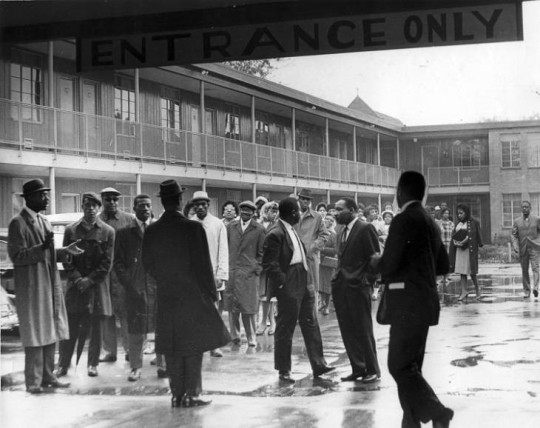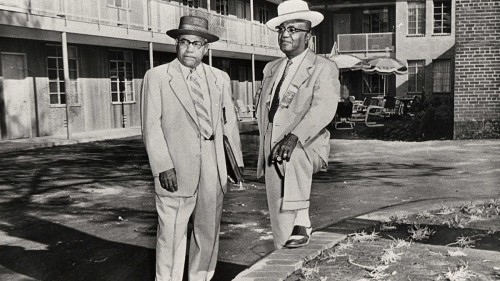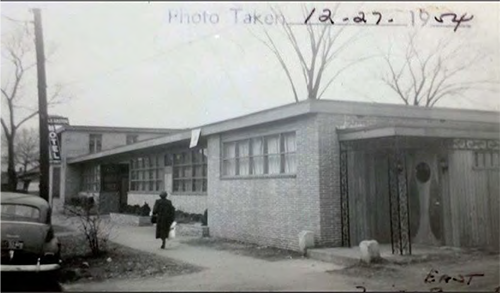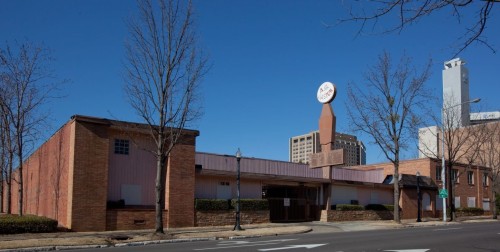#african american history month
The A.G. Gaston Motel of Birmingham
The A.G. Gaston Motel opened in 1954, built by prominent African American businessman and entrepreneur Arthur George Gaston. As a fixture of black businesses in Birmingham, Alabama, the motel was the choice for headquarters of the local civil rights campaign that shaped the city and the nation in 1963.

Postcard of the A. G. Gaston Motel in Birmingham, Alabama, circa 1960-1969 (From a book of letters sent to Arthur Shores, prominent attorney and civil rights leader in Birmingham, Alabama. With permission of Alabama Department of Archives and History).
In Birmingham, the Alabama Christian Movement for Human Rights (ACMHR), founded by Reverend Fred Shuttlesworth in 1956, was key in organizing resistance to segregation and discrimination within the city. Encouraged by Rev. Shuttlesworth, Dr. Martin Luther King, Jr. and members of the Southern Christian Leadership Conference (SCLC) joined forces with other civil rights figures in Birmingham in 1962.
Leaders from the SCLC took up residence in the A.G. Gaston Motel from April through May of 1963, which became the focus of the Birmingham Campaign planning activities. The hotel was the site of constant activity associated with the campaign, and meetings and press conferences held regularly within the courtyard were extensively documented and broadcast by journalists.

Martin Luther King, Jr. and others outside Gaston Motel in 1963 (Birmingham, Ala. Police Department Surveillance Files, 1947-1980. Collection 1125, Archives Department, Birmingham Public Library).
On May 10, 1963, the A.G. Gaston Motel was the site of the announcement of a compromise between local white business owners, city officials, and civil rights leaders. The truce addressed some of the issues in the original list of demands issued by the Birmingham Campaign. Rather than the originally called for immediate desegregation of lunch counters, restrooms, fitting rooms, and other facilities such as drinking fountains, and the hiring of more black workers, the compromise established a longer timeline to desegregate the city. The negotiations were met by a series of violent attacks, including the tragic bombing of the Sixteenth Street Baptist Church.

Sixteenth Street Baptist Church and Kelly Ingram Park (Historic American Buildings Survey, HABS AL-898, Library of Congress).
Nonetheless, efforts to desegregate the city continued slowly over the following months. These events in Birmingham created significant public pressure that helped lead to the passage of the Civil Rights Act of 1964, signed into law on July 2, 1964, by Lyndon Johnson.
A.G. Gaston modernized and expanded the motel in 1968, adding a supper club and other amenities. Business declined in the 1970s and in 1982 Gaston converted the motel into housing for the elderly, which functioned until 1996.
The City of Birmingham acquired the former motel in 2015 with the plan to incorporate it into the larger Birmingham Civil Rights Historic District. Today, the A.G. Gaston Motel is jointly owned by the National Park Service and the City of Birmingham and is a part of Birmingham Civil Rights National Monument, created to honor the nonviolent protesters that fought against discriminatory state and local laws and practices in the 1950s and 1960s.
For the full article: The A.G. Gaston Motel and the Birmingham Civil Rights Monument
Post link



